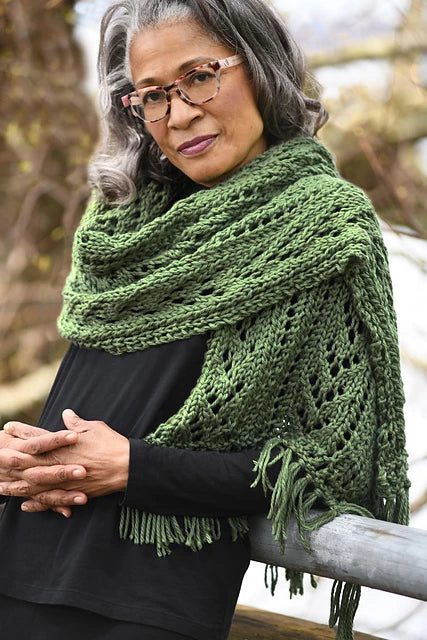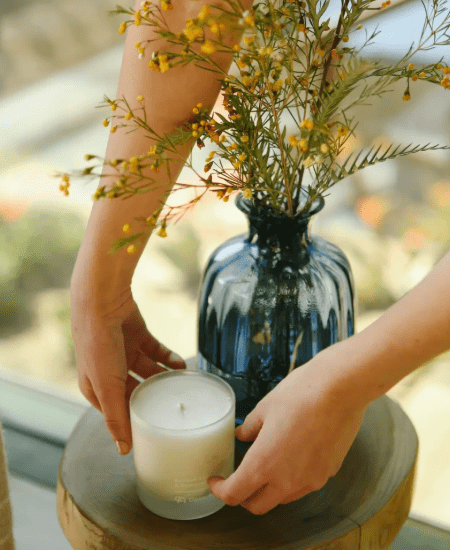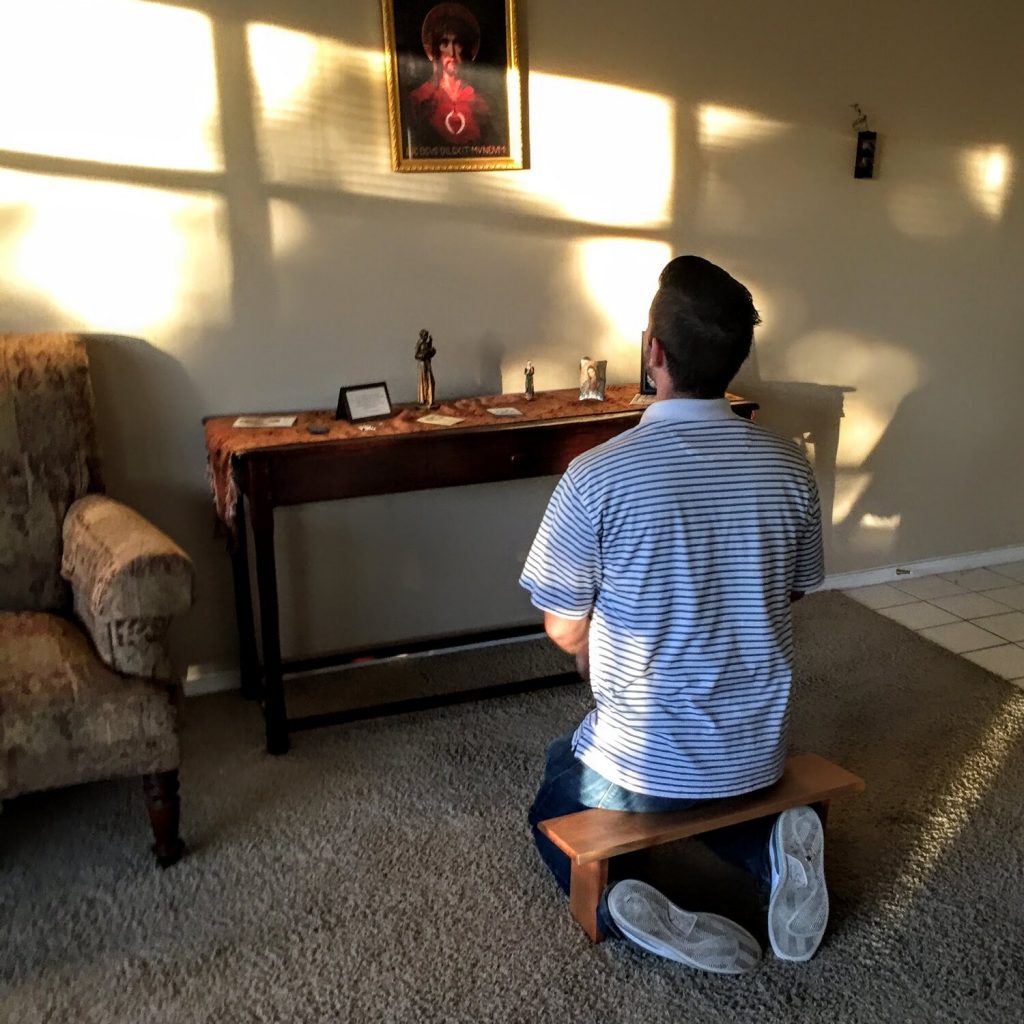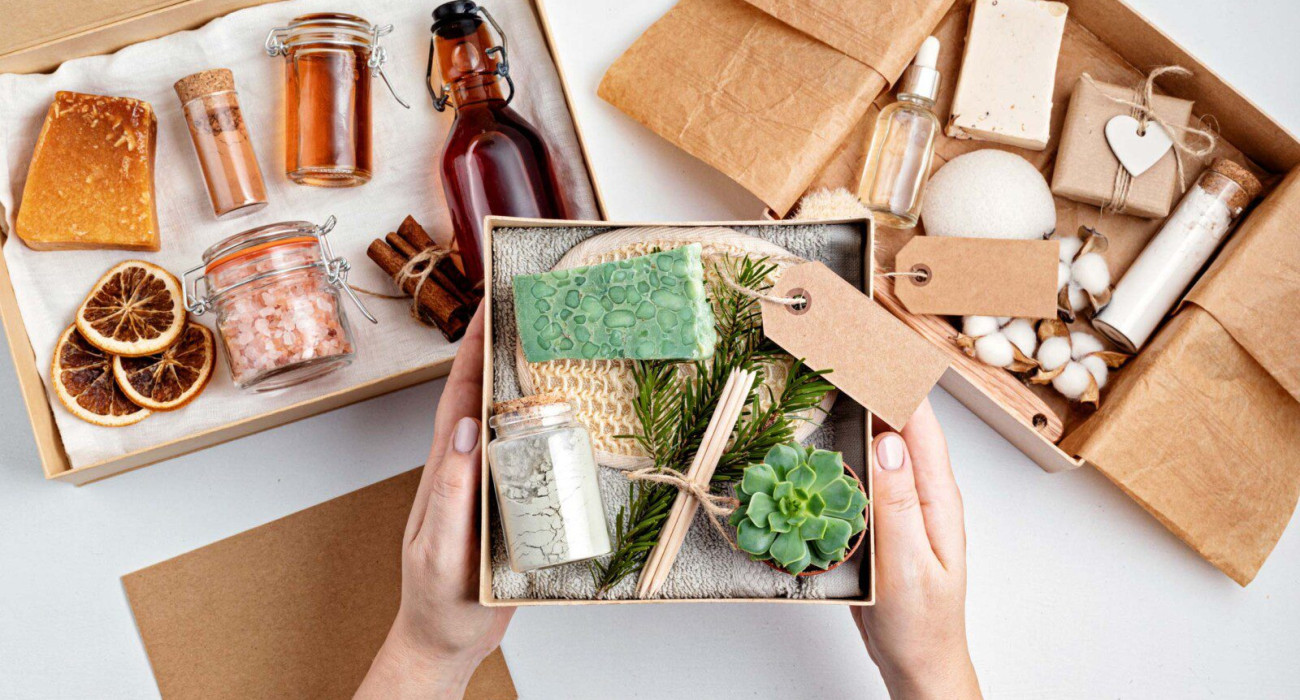People don’t just carry luggage when they travel. Many travellers bring ritual objects: things that connect them to home, faith, memory, or spiritual practice. These items may feel like small burdens in the suitcase, but their power is often far greater than their size. In this post we explore why guests travel with ritual objects—and how rental spaces (airbnb, guesthouses, hotels, etc.) can adapt to better accommodate this aspect of travel.
What Exactly Are Ritual Objects?
A ritual object is any physical item used in religious, spiritual, personal, or cultural practices. It could be a prayer mat, rosary or mala beads, sacred texts, incense burners, altar cloths, talismans, sacred stones, ceremonial scarves, or family heirlooms. Ritual objects often carry meaning: protection, identity, purification, remembrance.
According to Britannica, ceremonial objects serve many functions—“summoning, mediating, and expelling devices; ornamental items used in worship and sacred meals; purification instruments.” Encyclopedia Britannica+1 In many cultures, objects like incense burners or prayer wheels help people feel grounded in unfamiliar environments. Encyclopedia Britannica+2Encyclopedia Britannica+2
1. Why Guests Travel With Ritual Objects

Here are five deep-rooted reasons why ritual objects travel with people:
-
Continuity of Identity and Ritual
When someone moves physically—across cities, countries, cultures—carrying ritual objects is a way to maintain continuity of identity. A sacred text, a prayer shawl, ancestral items—they offer comfort, familiarity, and a sense of self. Without them, ritual practice can feel disrupted or superficial. -
Spiritual Protection and Blessing
Many travellers believe in spiritual protection. Objects may be used to ward off evil, invoke blessings, or maintain ritual purity. For pilgrims especially, bringing items that are to be blessed (statues, keys, scarves) is an essential act. Research on pilgrimages (for example in Brazil or Latin America) often notes how travellers bring personal objets that they want touched to sacred shrines, then returned—to receive protection or blessing. FGV EAESP -
Emotional Anchor and Coping Mechanism
Travelling can bring uncertainty, stress, homesickness, or exposure to unfamiliar norms. Ritual objects become emotional anchors. Lighting incense, using prayer beads, or reading sacred text can help one relax, reflect, or feel grounded amid chaos. -
Community, Memory, and Belonging
Ritual objects often represent community roots—heritage, family lineage, religious tradition. They evoke memories. For example, carrying a family rosary or an object from one’s childhood altar reconnects one with roots. When guests feel belonging even while far from home, it increases wellbeing and sense of meaning in travel. -
Transformational Purpose of Travel
Many travellers do more than observe: they seek transformation—spiritual growth, pilgrimage, rites of passage. Ritual objects are crucial in those processes. They are not decorative, but functional in rituals that mark transitions: before a journey, during special ceremonies abroad, at sacred sites, or at death pilgrimage.
2. What Rentals Often Overlook

While hosts and rental operators usually anticipate standard demands (beds, towels, toiletries), many overlook features important to guests who travel with ritual objects. Some common things they miss:
-
Safe storage or altars: A small shelf, safe box, or dedicated space to place ritual objects respectfully.
-
Clean surfaces: Rituals may require clean cloths, clean floor/ground, or even removable mats.
-
Permission for small fires/incense: Whether candles, incense, or oil lamps, regulations or just lack of awareness sometimes prevent safe use.
-
Private space: A place where guests can perform rituals without disturbance.
-
Knowledge of local restrictions: Some local laws or rules—especially in shared buildings or in countries with strict fire/safety codes—limit what’s allowed.
3. How Rentals Can Adapt to Support Travellers With Ritual Objects
Here are practical ways rental operators can adapt:

-
Designate a Ritual-Friendly Area
Furnish a small altar shelf or table beside a window. Provide a neutral cloth that can be laid down. Offer a small box or safe for valuables like sacred texts or relics. A well-lit corner and a gentle natural light source are ideal. -
Offer “Ritual Kits” or Accessories
These could include matches or a safe alternative (if open flame is not allowed), incense holders, a few small bowls for offerings, or even a small cushion for kneeling. Rentals could provide a basic kit or allow guests to request one in advance. -
Flexible Cleaning and Surfaces
Ensure the rental has a clean surface (wood, stone, or appropriately treated floor). Offer extra linens or cloths that are clean and could be used for sacred texts or ritual purposes. Provide wipes or cleaning materials. -
Policies That Respect Ritual Objects
Hosts should clearly state whether items like incense, candles, etc., are allowed. Fire safety is critical, so providing fire extinguishers or safety info helps. If open flame is disallowed, suggest safer alternatives (LED candles, essential oils, electric diffusers). -
Cultural Sensitivity Training for Staff
Staff or hosts should learn basic awareness: that guests may be carrying ritual objects not as decoration, but sacred, that they may need space, rituals at particular times (sunrise, sunset), or privacy. This helps avoid misunderstandings. -
Communication Before Arrival
Include in the booking or pre-arrival questionnaire: “Do you carry ritual or sacred objects or need space or items for your practice?” This allows hosts to prepare rather than scramble later. -
Inclusive Layout and Decor
Rentals can adapt decor to minimize conflicts: avoiding strong odors that conflict with incense, ensuring windows that open for smoke ventilation, floors that are easy to clean—especially if offerings involve liquids, flowers, ashes.
4. Benefits for Hosts & Rentals in Adapting

Why should rentals bother adapting? Because there are substantial benefits:
-
Guest satisfaction and loyalty: Guests who feel seen and accommodated are more likely to leave glowing reviews and return.
-
Market differentiation: In crowded rental or hotel markets, offering ritual-friendly spaces can attract a niche audience, especially pilgrims, spiritual retreat seekers, or religious travellers.
-
Reduced damage or conflict: Clear policies and thoughtful design reduce risks of fire, smoke damage, or unexpected clean-ups.
-
Word-of-mouth and referrals: When guests feel sincerely respected, they tell others. This is especially effective in niche or faith-based traveller communities.
-
Cultural respect and ethical hospitality: For rentals in regions with many religious or spiritual visitors, adapting shows respect and awareness, which enhances reputation locally and globally.
5. Examples From Around the World

-
In pilgrimage sites, many guesthouses already offer small shelves or lockers for sacred texts or rosaries, and sometimes incense or oil lamps for rent or loan.
-
In Buddhist retreats, accommodation is often minimalist, with cushions, mats, and simple altar tables to allow daily chanting or meditation.
-
In Muslim majority countries, many hotels provide prayer mats (sajadah), facing indicators (qibla direction), and washing areas.
6. Challenges & How to Overcome Them
While adapting is noble, rentals may face obstacles:
| Challenge | Potential Solution |
|---|---|
| Safety concerns (candles, incense) | Offer safe alternatives; ensure fire safety equipment; clearly communicate policy. |
| Regulatory constraints | Research local building codes; get necessary permissions; sometimes host can offer in outdoor spaces. |
| Cleaning & upkeep | Charge deposit or cleaning fee for ritual-areas; provide easy-to-clean surfaces; set up guidelines for guests. |
| Cultural misunderstandings | Train staff; clarify in host description; use respectful language; ask guests about their needs. |
(Featured Keyword) Why Guests Travel With Ritual Objects — Full Circle
Let’s revisit why guests travel with ritual objects in summary, especially considering all the adaptation ideas above.
When we ask why guests travel with ritual objects, it’s because these objects are more than physical things — they are bridges. They connect to identity, faith, safety, emotional well-being, and transformation. They make travel not just a movement in space, but movement in spirit.
If rentals adapt — by providing space, kits, respectful policies — they are acknowledging that travellers are whole people, not just customers. They recognize that ritual objects are essential to many travellers’ lives. By doing so, rentals help travel become more meaningful, more comfortable, more respectful.
Conclusion
Understanding why guests travel with ritual objects is more than academic. It’s about respect, dignity, and hospitality. Rentals that pay attention to this aspect of travel can create spaces of refuge, transformation, and belonging. Whether through small adjustments like offering a shelf, safe storage, clean cloths—or larger ones like asking questions before arrival and setting thoughtful policy—these changes make a big difference.
If you manage a rental or plan one, consider doing a ritual-audit: walk through your space imagining how someone might perform a ritual there. What would they need? What might get in their way? And then adapt. When we design with purpose, we honor those deep human impulses that often travel with us in physical objects.
Further Reading
-
Ceremonial object: Forms of ceremonial and ritualistic objects according to their functions, Britannica. Encyclopedia Britannica
-
Ritual Objects and Symbols – Knowledge.Deck.no for anthropological overviews of objects used in ritual work. Knowledge.Deck.no
-
The Ritual Importance of the Mundane: White Cloth Among the Tai of Southeast Asia, Expedition Magazine. penn.museum
